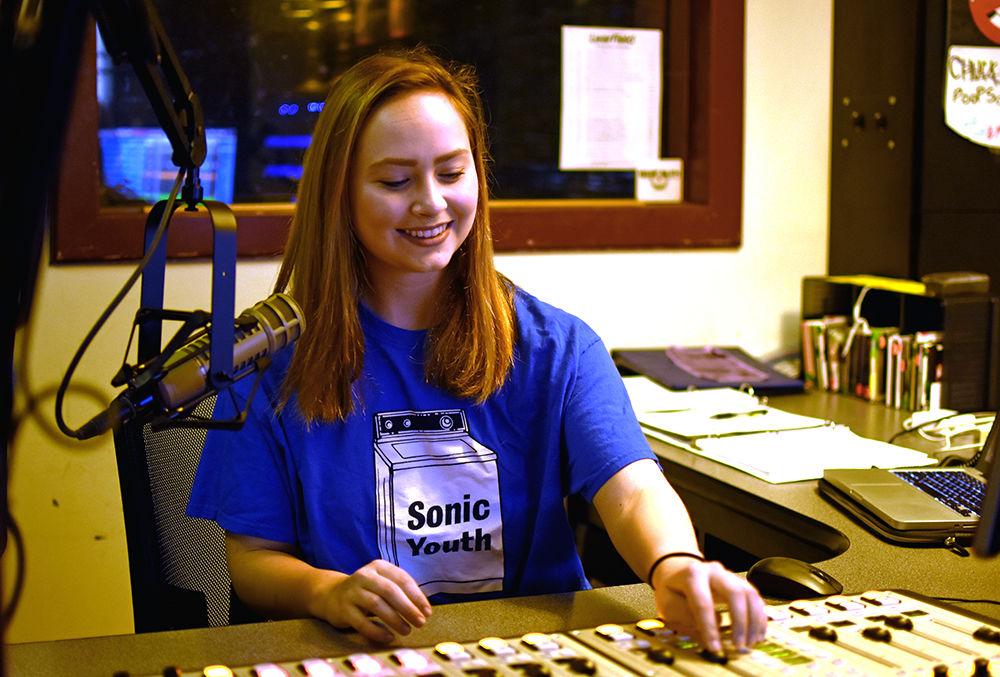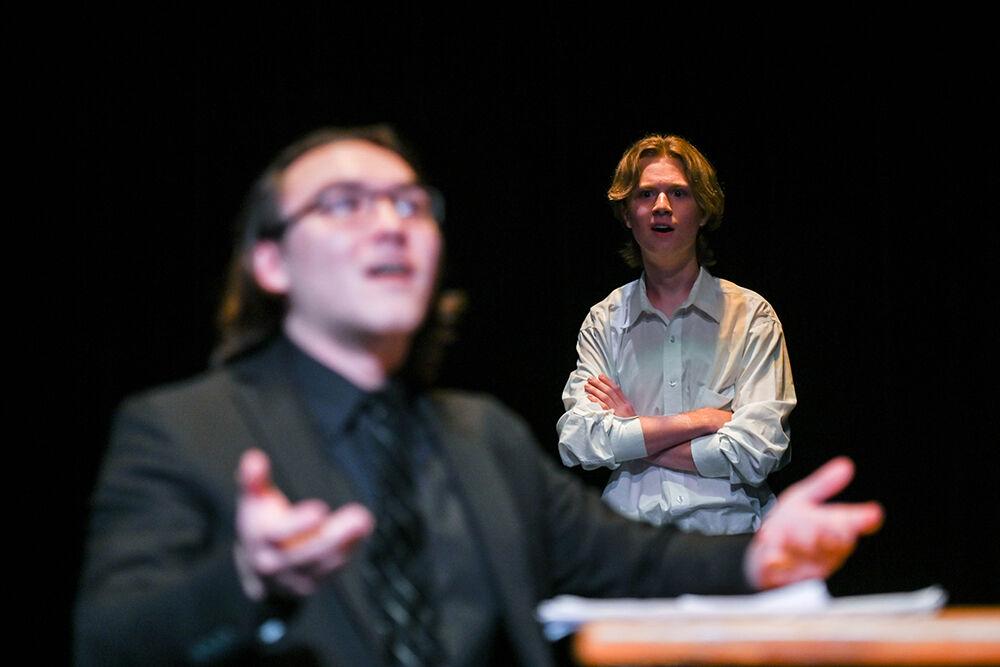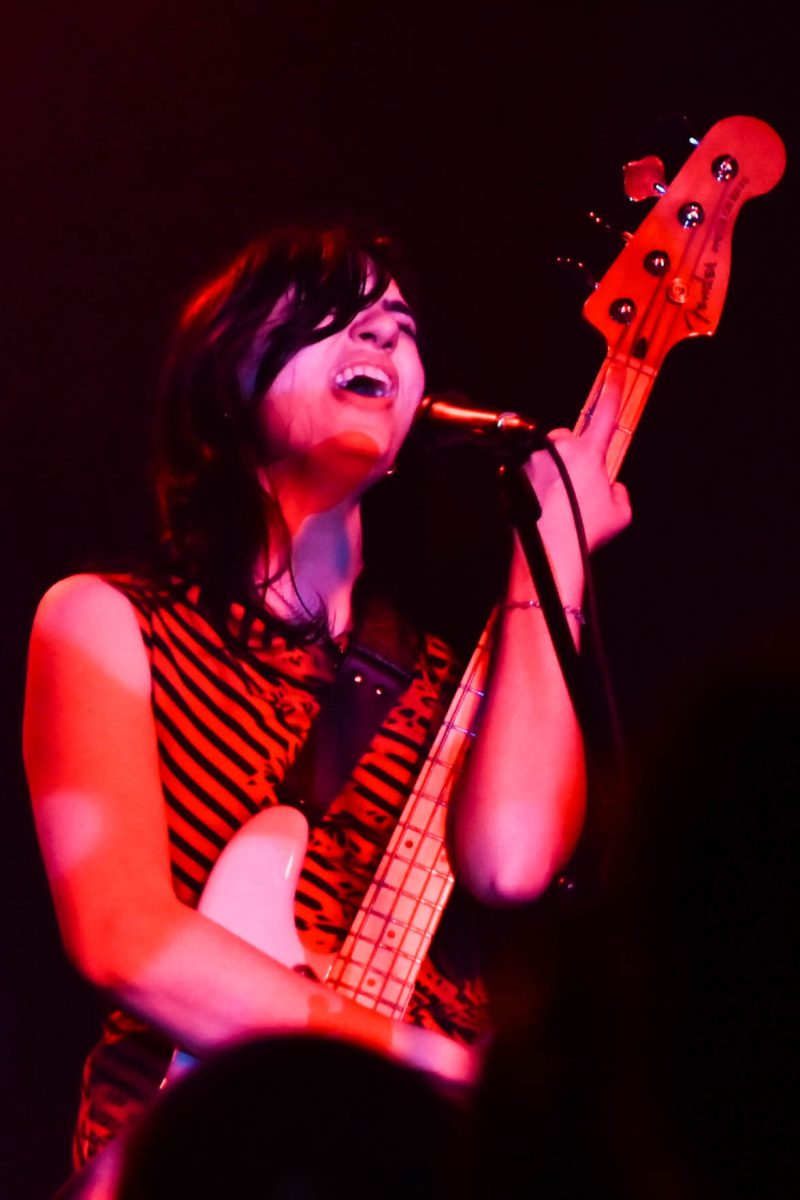A soft glow of stringed lights and a crowd of young music lovers, many of whom are strangers, bound by the closeness of a furniture-less living room and the sounds coming from a band in the corner where the couch sat just a few hours prior. This is the image that “The Living Room Experience,” a student-made audio-documentary paints in the mind as it tells, but doesn’t show, what has built and sustained Raleigh’s underground music culture. A house show is a do-it-yourself (DIY) experience built on a web of organization of bands and super nodes, generosity of houses and their hosts, the willingness of a band to play a show that won’t make them much money and the vulnerability of music fans to crowd into an unconventional venue to support a small band. The DIY aspect of music culture connects people through a celebration of music — simply for being music. This idea is one that Marissa Jerden, a third-year studying geology and creator of “The Living Room Experience,” has precisely encapsulated in her 46-minute documentary.
“DIY is doing music unprofessionally,”Jerden said. “It’s taking it up on your own, performing in unconventional venues and just for the sake of music. They aren’t doing it for money, it’s just purely for the sake of making art.”
Unbeknownst to many, Raleigh is a hub for this DIY music scene and it has cultivated its own subculture. Jerden was inspired to make the documentary after getting involved with 88.1 WKNC, NC State’s radio station, during her first year here as a student. Many students at the radio station play at the nearby house venues and, since they do not require that concertgoers are 21 and up or charge hefty ticket prices and processing fees, the experience of a living room concert is both welcoming and intimate.
“House shows tend to be more intimate, you’re up close and personal with a band in somebody’s tiny living room, which is where the name came from,” Jerden said. “And, you can meet the band after. Money isn’t a big part of it. Commercial music is made to sell, and a lot of people don’t like to hear that but it’s true. So, I think it’s nice to have music just for the sake of music.”
There are seemingly normal music homes all around NC State, such as Radio Shack, Shrieking Shack, Kosher Hut and LaundroMat, all spotlighted in the documentary, that work hard to organize small bands from Raleigh, and sometimes further out, for concerts inside their homes. It’s not easy preparing a home for a house show, nor putting it back together afterwards, but it is worth it, according to Mariam Marand, a fourth-year studying plant biology and previous host at the Shrieking Shack.
“A lot of our shows were upbeat punk shows or electronic shows, but there would always be a ton of people and it was a very social environment,” Marand said. “I felt like people were able to go in there and not know anyone and make friends. House venues are more personalized, you meet more people that may help you get involved with other places, things [and] opportunities in the future.”
This sentiment of house shows being less about the money and more about the experience and connection is portrayed strongly throughout the documentary. Jerden highlighted four house venues and two bands, Soccer Tees and Echo Courts, all of which made it apparent that the music scene they’re involved with is about supporting small bands and allowing music to be more than just the big time commercial scene. Jerden parallels this anti-consumerism of our own underground music scene to that of the 1970s punk scene in Manchester, England, which was just as much a social movement as it was a musical one.
With the support and resources available with WKNC, Jerden spent a year putting together the “The Living Room Experience” and plans to do more in the future. While the documentary may have her name stamped on it, the project mirrors the collaborative web necessary for the local music scene to survive.
“We’re young people who love music, [I thought] let’s do something,” Jerden said. “Without reaching out and helping other people, you can’t have something like this, and you couldn’t have a local DIY music scene without people reaching out and helping each other either.”
The audio-documentary is available through SoundCloud and WKNC’s Eye on the Triangle station on iTunes.












